hustle culture
description: a societal trend glorifying relentless work and entrepreneurial spirit at the expense of work-life balance
16 results
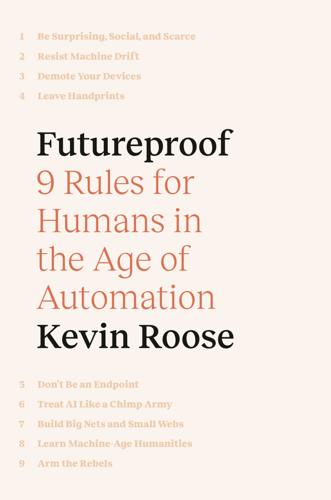
Futureproof: 9 Rules for Humans in the Age of Automation
by
Kevin Roose
Published 9 Mar 2021
This strategy has become increasingly popular in recent years, with the advent of so-called “hustle culture.” All over social media, influencers and business gurus preach the value of productivity and constant, ceaseless effort. They post inspirational “hustle porn” memes on Twitter, LinkedIn, and Instagram with phrases like “Rise and Grind” or “Thank God It’s Monday.” They trade life hacking tips and cut out unnecessary cognitive burdens by wearing the same clothes every day or eating the same thing at every meal. Hustle culture has a long lineage. In the late eighteenth and early nineteenth centuries, a former steelworker named Frederick Winslow Taylor came up with a theory of “scientific management” that took the American business community by storm.
…
Marissa Mayer, the former chief executive at Yahoo, bragged in a 2016 interview about how hard she worked, saying that it was technically possible to work as many as 130 hours a week “if you’re strategic about when you sleep, when you shower, and how often you go to the bathroom.” Unlike Taylor’s scientific management, which was often mandated from the top down, hustle culture is typically self-imposed. It’s an outgrowth of the philosophy the writer Derek Thompson has called “workism”—the belief, common especially among type-A millennial overachievers, that work is not just an economic necessity but the primary source of identity and meaning in our lives. There are plenty of reasons to reject hustle culture. It carries real risks to workers’ physical and mental health. It tends to favor young, childless, able-bodied men, who are less likely to have family responsibilities and more likely to be able to work punishingly long hours.
…
It tends to favor young, childless, able-bodied men, who are less likely to have family responsibilities and more likely to be able to work punishingly long hours. And it reinforces a brutal, regressive capitalist ethos that can undermine efforts to make workplaces more equitable and humane. But I want to draw your attention to a more immediate problem with hustle culture, which is that in the age of AI and automation, hustling is actually counterproductive. No matter how hard you work, you simply cannot outwork an algorithm. If you try, not only will you lose, but you will sacrifice your unique human advantages in the process. The idea that we can outwork machines is a seductive fantasy, going all the way back to the legend of John Henry and the steam engine.
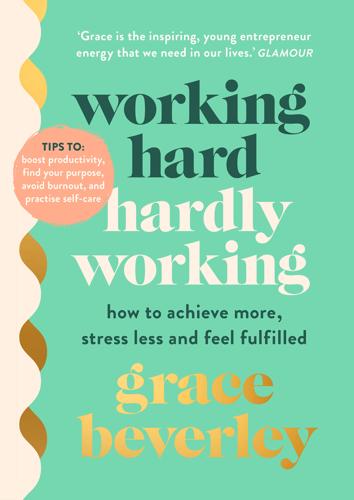
Working Hard, Hardly Working
by
Grace Beverley
Thankfully, there are many people out there who don’t kill themselves at work despite this culture; who are happy keeping a balance of earning just enough, enjoying their job and working at 60 per cent capacity day-to-day so they can finish early and go for a pint or a run or whatever else they enjoy. But what isn’t right is that this is seen almost like an act of rebellion within our new working world. What I find particularly contradictory in the rise of hustle culture is that not all hustle was created equal. There’s a discrepancy between the hustle culture I’m discussing – normalised unrelenting busyness and hustle-porn – and those who need to work extra jobs and excessive hours in order to make ends meet. It’s one of the fundamental paradoxes of capitalism that work can be both glamorous and ugly; covetable and exploitative.
…
While it might not settle the debate once and for all, perhaps it could be rephrased as ‘we might be lazy, but it’s because we’re burned out’, or ‘we might be entitled, but that’s because we are entitled to expectations that don’t involve financial crashes, job shortages, climates ascending at an alarming rate and affordable housing as an exception to the rule’. Perhaps it also says something that I’m not even part of the millennial cohort discussed – born in 1997, I teeter on the cusp and fall into Generation Z by definition – and I’m a homeowner, yet I still feel the afflictions of our hustle culture and situationally-induced burnout. The fact that I agree with Petersen, and yet am not a millennial, does not negate her argument in the slightest. In fact, it shows just how epochal these issues stand to be – perhaps it’s not just a single burnout generation we’re looking at, but an entire new burnout culture created by our new working world.
…
Generally, we no longer think it’s necessary to sit through fifteen years of corporate work in order to know the field and move up the rankings, paying respect to the culture in return for a pension we’re not even guaranteed to receive. We’d rather better our chances by trying our own luck, spurred on by side-hustle culture. We refuse to be put in a box, but suffer from the lack of boundaries that comes from moving beyond those walls of traditional benchmarks. As a generation, we’ve grown up without definitive borders between work and ‘not-work’. Technology allows us constant access to our working lives, which has slowly but surely developed into an anxiety that not working anywhere and everywhere is the equivalent of being in the office and having a nap.
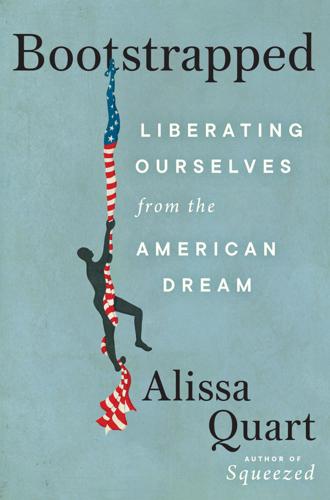
Bootstrapped: Liberating Ourselves From the American Dream
by
Alissa Quart
Published 14 Mar 2023
It was in the exhortations of former SoulCycle CEO Melanie Whelan, who pushed “hustle culture” to one and all. “Hustle opens the doors of opportunity,” Whelan once said, encouraging her followers to work long days with the exhortation to “rise and grind.” The urban legends of side hustling at its worst included one Lyft driver who continued to pick up riders after she went into labor, then Lyft-ed herself to the hospital to give birth, and T-shirts with the slogan “9 TO 5 IS FOR THE WEAK.” It was in a set of risible “hustle culture” memes extolling the “grindset.” One maxim: “You can’t make excuses and money.
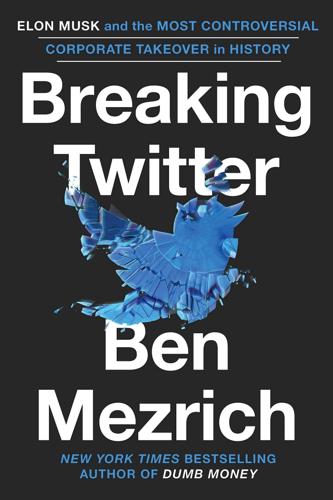
Breaking Twitter: Elon Musk and the Most Controversial Corporate Takeover in History
by
Ben Mezrich
Published 6 Nov 2023
It had been getting viral numbers almost right away, and then had truly gone stratospheric the next night—Thursday—in the midst of the mass firings. It was the media that had put the two themes together: Esther “simping” for the impetuous billionaire while he shredded Twitter. Suddenly she was being portrayed as glorifying “hustle culture” while Elon was haphazardly firing Tweeps who had been with the company for a decade, cutting the company so deep to the bone that internal systems were threatening to collapse. But Esther saw the image of her, in her sleeping bag, on the floor of a conference room, as a badge of honor. When she had launched her first start-up in her early twenties, fresh out of a cult and barely getting by on welfare, she had worked round the clock, forgoing meals and sleep for days on end.
…
When she had launched her first start-up in her early twenties, fresh out of a cult and barely getting by on welfare, she had worked round the clock, forgoing meals and sleep for days on end. This wasn’t late-stage capitalism at its worst, or Elon enslaving employees for his own bank account—this was Esther, leading by example, trying to elevate her new team to achieve something for the greater good. Angry, laid-off Tweeps could call it hustle culture, but Esther was just out there shooting her shot; she’d survived the first round of layoffs because she’d made herself indispensable, and now she was one of the few Tweeps left working face-to-face with Elon, building Twitter 2.0. The grind had begun almost immediately on Saturday morning, before Elon had left for New York.

Make Your Own Job: How the Entrepreneurial Work Ethic Exhausted America
by
Erik Baker
Published 13 Jan 2025
Our image of “the entrepreneur” is still dominated by two antipodal figures: the tech billionaire and the gig worker using that billionaire’s app to scrape out an income. It is for this reason that the story of the entrepreneurial work ethic and its long career can help us make better sense of the broken culture of work in the contemporary United States. Here, too, there is contradiction. On the one hand there is burnout, a hustle culture whose intensity many Americans feel is grinding them into mental, emotional, and physical depletion. On the other hand, there is the lingering poison of deindustrialization, the anomie or social decay that appears to creep into communities where work disappears. But to some extent, these complaints are two sides of the same coin.
…
People who quit their jobs might find themselves forced to string together a series of “side hustles” to earn a living—but just as it did for odd-jobs workers in the Great Depression, the entrepreneurial work ethic can help side-hustlers endure or even enjoy their new working life, its precarity offset by the virtues of self-management and flexibility. The journalist Daisy Jones speculates that the girlboss was undone in part by the fact that, despite Amoruso’s entrepreneurial intentions, the figure came over time to resemble “the archetypal careerist”—a kind of Organization Woman—more than she did the forms of selfhood valorized by “side-hustle culture.” “Young people today are having to work multiple jobs just to make ends meet,” she writes. “They’re running Depop businesses, becoming party photographers, doing DJ streams on Twitch,” and consequently not climbing the corporate ladder to achieve (girl)bossdom.48 The entrepreneurial work ethic celebrates the charismatic executive and the small-time hustler alike, but it can be challenging to strike an ideologically acceptable balance: when times are tough, articulations of entrepreneurialism that focus too heavily on the bosses can find themselves displaced by rivals that instead celebrate the hardscrabble grinders.
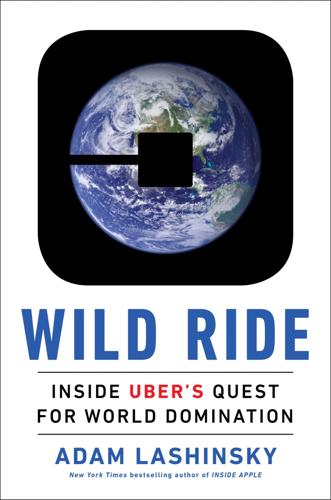
Wild Ride: Inside Uber's Quest for World Domination
by
Adam Lashinsky
Published 31 Mar 2017
For the entire month of September, when Kalanick negotiated his terms for becoming CEO, UberCab transported 427 riders. As it would raise money and expand to a handful of additional cities over the course of the next year, the young company would be fueled by a combination of transformative technology and old-fashioned, seat-of-the-pants human effort. Uber’s was a “hustle culture,” with a can-do spirit of long hours and a try-anything-once work ethic. In time, Kalanick would hit on the trope of “bits and atoms” to describe Uber’s unique matching of digital prowess with physical assets that set it apart from the prominent Internet companies that had come before it. Such pithy descriptions were a ways off, however.
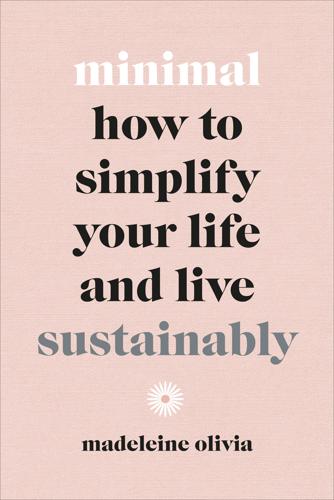
Minimal: How to Simplify Your Life and Live Sustainably
by
Madeleine Olivia
Published 9 Jan 2020
This is not a drill, people; we’re talking species extinction. A mass movement and overhaul of society is required to stop the worst from happening, and political action is needed. Capitalism has enabled so many of us to grow our incomes, consume more crap we don’t need and use way more resources than we should be allowing ourselves. We need to stop the hustle culture, flaunting what we own and constantly striving for more more more. Instead, we need to make people strive for less. Less stuff, less work and less greed. We need to minimise on a worldwide scale. Public attitudes are already changing, but are the top 1 per cent listening? The final thing I want to say is that this is complicated.
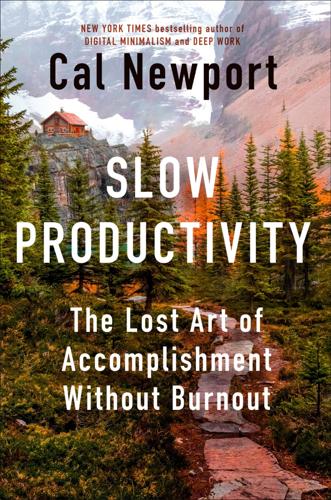
Slow Productivity: The Lost Art of Accomplishment Without Burnout
by
Cal Newport
Published 5 Mar 2024
It started with a TikTok user named @ZKChillen posting a seventeen-second video in which soft piano music plays over scenes of New York City: a subway, a downtown street, a residential street, and then, for some reason, a child’s bubble-blowing machine. “I recently heard about this idea of quiet quitting,” the narrator begins, “where, you’re not quitting your job, but quitting the idea of going above and beyond in your work.” He goes on to reject the “hustle culture” belief that your work is your life. “The reality is that it’s not,” he concludes. “And your worth as a person is not defined by your labor.” As the original @ZKChillen video gained attention, more TikTok videos followed, most featuring young narrators making their own earnest declarations about their own embrace of quiet quitting.
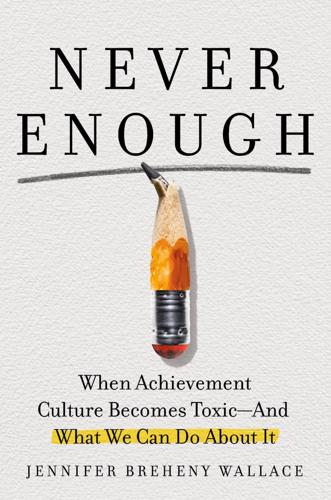
Never Enough: When Achievement Culture Becomes Toxic-And What We Can Do About It
by
Jennifer Breheny Wallace
Published 21 Aug 2023
Like these world-class musicians, teens should be getting eight to ten hours of sleep a night, but fewer than 25 percent of teens today are getting the minimum. In one study of teens, those who got more than eight hours of sleep a night were found to be the most mentally healthy, reporting the lowest levels of moodiness, feelings of worthlessness, anxiety, and depression. In a community that emphasizes hustle culture, insisting that your child rest—whether it’s closing the books at night so they get a full night’s sleep or encouraging them to nap—can feel risky. But when adolescents don’t have the skills to decompress, they are more likely to turn to unhealthy coping strategies to manage the stress and anxiety they feel, such as drugs or alcohol.
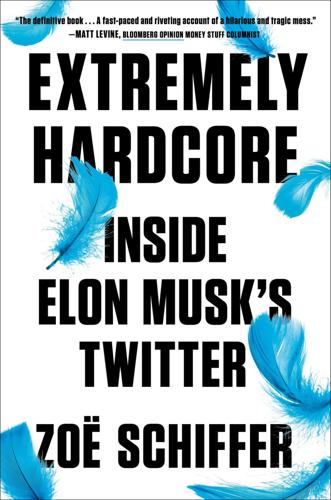
Extremely Hardcore: Inside Elon Musk's Twitter
by
Zoë Schiffer
Published 13 Feb 2024
She wasn’t naive about the company’s problems—Twitter was inefficient, its promotion process highly political—but she appreciated that anyone could influence the direction of the product, so long as they knew who to talk to and were willing to have many, many conversations. Yue didn’t believe in the gospel of hustle culture. In engineering, there were two questions to ask: Is this the right answer? And, is there a better way to solve this problem? Once she’d answered those queries, she didn’t need to spend a million hours working just to prove that she cared about her job. But some work was required, particularly from Twitter’s leadership.
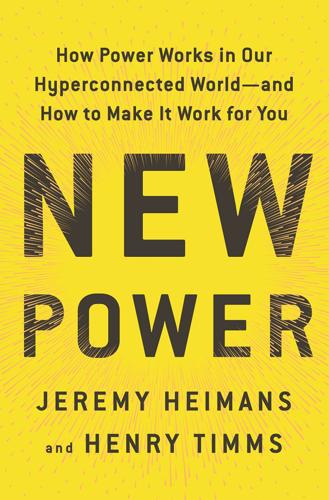
New Power: How Power Works in Our Hyperconnected World--And How to Make It Work for You
by
Jeremy Heimans
and
Henry Timms
Published 2 Apr 2018
Despite its new power model, Uber has a track record of sabotaging its competitors, intimidating journalists, and hoodwinking government regulators to come out on top. In a leaked document that detailed what it looked for in employees, Uber highlights “fierceness” and “super-pumpedness,” all part of a “hustle” culture. It’s worth noting that while norms around collaboration and “sharing” are now all the rage in our business and culture, that doesn’t mean they always produce better outcomes. A recent study in Applied Psychology found that “cooperative contexts proved socially disadvantageous for high performers”—who find themselves ostracized by the rest of the group.

Supremacy: AI, ChatGPT, and the Race That Will Change the World
by
Parmy Olson
After selling Loopt and then breaking up with Nick Sivo, who had also been his long-term romantic partner, and then working for his acquiring company for a spell, Altman spent a year doing whatever he wanted. He detached himself completely. It generally doesn’t look good to take a year off in the hustle-culture world of Silicon Valley, and Altman noticed the consequences immediately. If he started talking to someone at a party and mentioned his plans to take a year off, their eyes would look for someone else to talk to. He kept a thread of a connection with California’s Bay Area, working as a part-time partner with Y Combinator.
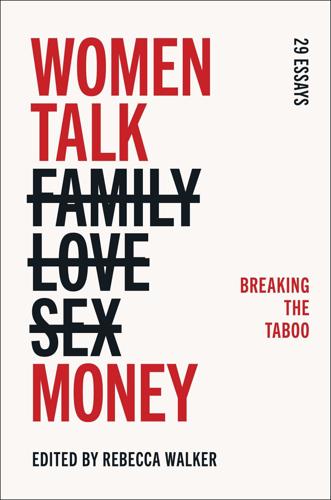
Women Talk Money: Breaking the Taboo
by
Rebecca Walker
Published 15 Mar 2022
No matter what social justice hashtags were trending for the week, I would find another way to pay the rent. As journalist Diyora Shadijanova tweeted in the spring of 2021: at some point we have to recognise that the financial anxiety young people are living through is not normal. monetising all your hobbies is not normal. hustle culture is not normal. glorifying precarious work is not normal. self-optimisation is not normal. Watching sponsorship inquiries trickle to nothing, I moved my moneymaking endeavors away from social media. And I moved my home from California to the land where I grew up, on Maui, to live in a two-hundred-square-foot studio.
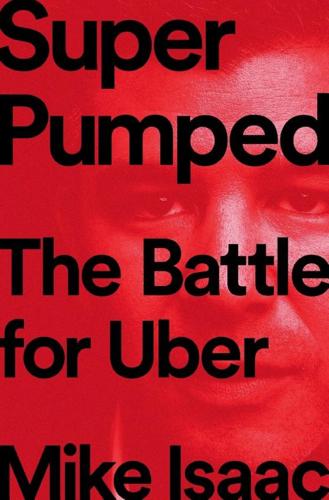
Super Pumped: The Battle for Uber
by
Mike Isaac
Published 2 Sep 2019
This shift in the funding of American technology businesses would change the way a generation of the most successful startup founders would expect to be treated by their backers—the “cult of the founder” meant celebrating the vision of the founder no matter what, a slavish devotion to the CEO of a company simply because he was the CEO. Twelve-hour workdays and a nonexistent social life became things to be celebrated, the markers of a “hustle culture” that the tech bro founders embodied. (Of course, these hardworking bros also played hard, at events like X to the x.) Even when those founders were bending rules and even laws, they were treated as Platonic philosopher kings. Many believed the founders were remaking the world, making it smarter, more logical, meritocratic, efficient, and beautiful—delivering a new and much improved version: an upgrade on life.

Character Limit: How Elon Musk Destroyed Twitter
by
Kate Conger
and
Ryan Mac
Published 17 Sep 2024
He climbed on an office couch to get a better overhead angle of her in a sleeping bag, then tweeted the photo. Crawford then retweeted it with her own message: “When your team is pushing round the clock to make deadlines sometimes you #SleepWhereYouWork.” The image rocketed around the internet. To Musk’s detractors, it symbolized the cringeworthy hustle culture that dominated the tech world and normalized the idea of working at all hours to appease a corporate overlord. To Musk’s supporters, the photo showed the impact a once-in-a-lifetime innovator was having on a company that needed a revolution. In reality, it was a joking, if not shrewdly calculated bit of self-promotion by Crawford.

Four Battlegrounds
by
Paul Scharre
Published 18 Jan 2023
(Mozur, “One Month, 500,000 Face Scans: How China Is Using A.I. to Profile a Minority.”) 91suppliers for Skynet or Sharp Eyes: Li, Liu, and Ting-Fang, “China’s ‘Sharp Eyes’ Offer Chance to Take Surveillance Industry Global.” 91Algorithms from SenseTime and Yitu: “Face Recognition Vendor Test (FRVT),” National Institute of Standards and Technology, updated November 30, 2020, https://www.nist.gov/programs-projects/face-recognition-vendor-test-frvt. 91Yitu took first place: Patrick Grother et al., The 2017 IARPA Face Recognition Prize Challenge (FRPC) (National Institute of Standards and Technology, November 22, 2017), 2, https://nvlpubs.nist.gov/nistpubs/ir/2017/NIST.IR.8197.pdf. 92Proponents of Chinese tech companies: Kai-Fu Lee, AI Superpowers: China, Silicon Valley, and the New World Order (Boston: Mariner Books, September 1, 2018), https://www.amazon.com/AI-Superpowers-China-Silicon-Valley/dp/132854639X. 93strength of China’s technology sector: “The Companies,” Macro Polo, n.d., https://macropolo.org/digital-projects/chinai/the-companies/. 93China’s AI “national team”: Jeffrey Ding, “ChinAI #51: China’s AI ‘National Team,’” ChinAI Newsletter, May 20, 2019, https://chinai.substack.com/p/chinai-51-chinas-ai-national-team. 93“China’s Silicon Valley”: “China’s Silicon Valley Is Transforming China, but Not Yet the World,” The Economist, July 13, 2019, https://www.economist.com/china/2019/07/11/chinas-silicon-valley-is-transforming-china-but-not-yet-the-world; Meng Jing, “Zhongguancun: Beijing’s Innovation Hub Is at the Centre of China’s Aim to Become a Tech Powerhouse,” South China Morning Post, November 13, 2018, https://www.scmp.com/tech/start-ups/article/2172713/zhongguancun-beijings-innovation-hub-centre-chinas-aim-become-tech; “Zhongguancun, China’s Silicon Valley,” China.org.cn, December 12, 2002, http://www.china.org.cn/english/travel/51023.htm. 93employees expected to work “996”: Lin Qiqing and Raymond Zhong, “‘996’ Is China’s Version of Hustle Culture. Tech Workers Are Sick of It,” New York Times, April 29, 2019, https://www.nytimes.com/2019/04/29/technology/china-996-jack-ma.html. 93iFLYTEK: Ding, “ChinAI #51: China’s AI ‘National Team.” 93sixth smartest company in the world: SpaceX, in “What Are the 50 Smartest Companies?” MIT Technology Review, June 27, 2017, https://www.technologyreview.com/lists/companies/2017/intro/#spacex (page discontinued). 93twelve awards: Zhu Lixin, “iFlytek Delivers on Promise to Become Major Player,” Chinadaily.com.cn, updated February 19, 2019, https://www.chinadaily.com.cn/a/201902/19/WS5c6b5f9ba3106c65c34ea0c3.html; iFLYTEK, “iFLYTEK, Asia’s AI Leader, Unveils iFLYTEK Translator 2.0, iFLYREC Series Voice-to-Text Products, AI Note and iFLYOS at CES 2019,” news release, January 6, 2019, https://www.marketwatch.com/press-release/iflytek-asias-ai-leader-unveils-iflytek-translator-20-iflyrec-series-voice-to-text-products-ai-note-and-iflyos-at-ces-2019-2019-01-06 (page discontinued). 9450 percent of the company’s $1 billion in annual revenue: Lin Ji, interview by author, July 8, 2019. 94The “customer is like god”: Lin, interview. 94Independent investigations of iFLYTEK operations in Xinjiang: Alexandra Harney, “Risky Partner: Top U.S.